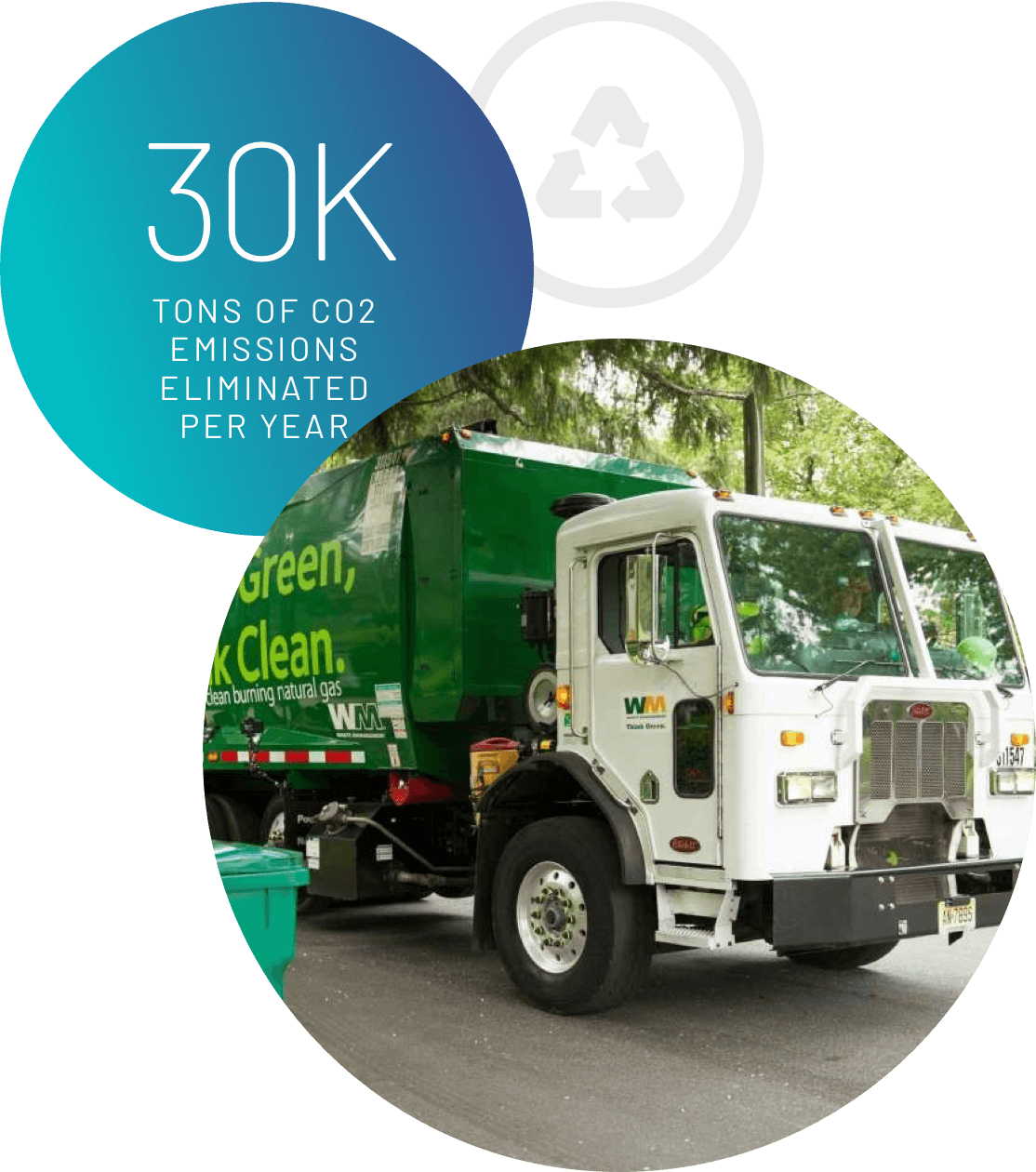
RNG refuse trucks poles ahead of electric for clean air and carbon reduction
By switching its refuse collection fleet to RNG (biomethane) fuel the US state of New Jersey could over a 12-year period reduce NOx air pollution by 14,000 tons and its carbon footprint by over 10 million tons.
Those performance figures are among the headline findings of a cost-benefit analysis undertaken by NGV America (Natural Gas Vehicle).
RNG is cleaner, greener and cheaper
The study (summarised here) analysed the costs and environmental impact of switching the state’s 10,000-strong refuse collection fleet from diesel to both RNG and battery electric.

In terms of NOx and GHG the analysis found the RNG fleet would reduce 14,000 tons of NOx compared to only 9,700 tons for the battery fleet. In terms of greenhouse gasses the RNG fleet would reduce 10.6 million tons of CO2 compared to the battery fleet’s 9.2 million-tons.
Furthermore, the cost difference is substantial. To switch the entire fleet to RNG vehicles – only an estimated $350 million in incremental costs for NGVs while a complete battery electric fleet conversion could cost between $3.5 and $4.2 billion.
There are other benefits. RNG-fuelled trucks offer more payload than their battery electric counterparts, due to their heavy, bulky, and expansive battery storage needs. The result is that electric refuse trucks are expected to collect less waste per load requiring either more trucks in deployment, more route miles driven, or reduced services to communities.
The greater payload of RNG would conversely reduce the number of collections. New Jersey has a population of little under 9 million, spread over nearly 9 million square miles.
RNG trucks are also more reliable. New Jersey is storm-prone and blackouts are not uncommon, which means collections would be vulnerable to disruption if the fleet was battery electric.
RNG a ‘better investment of public tax dollars’
Over 550 natural gas trucks are currently deployed in New Jersey, serving 16 of the 21 counties in the state. To date, communities and businesses in New Jersey have invested more than $200 million in natural gas trucks and fuelling infrastructure, with 100 publicly accessible fuelling stations. This must continue says NGV America President Dan Gage.
“New Jersey leaders and policymakers should take note: not only do natural gas vehicles fuelled by RNG outperform battery electric alternatives in terms of impactful NOx and GHG reductions, they are more cost effective and make far better investments of public tax dollars.
“Furthermore, this transition in New Jersey to cleaner natural gas refuse fleets is underway, with three-quarters of all New Jersey counties deploying natural gas refuse trucks already.
“A complete RNG-fuelled refuse fleet in New Jersey would clearly outperform a complete battery electric fleet in terms of both reducing harmful NOx emissions and greenhouse gas emissions,” added Gage. “And New Jersey communities would achieve more clean air and better reduce their GHG footprint at a fraction of the cost by deploying NGVs versus unproven and cost-prohibitive infant battery electric technology.”

